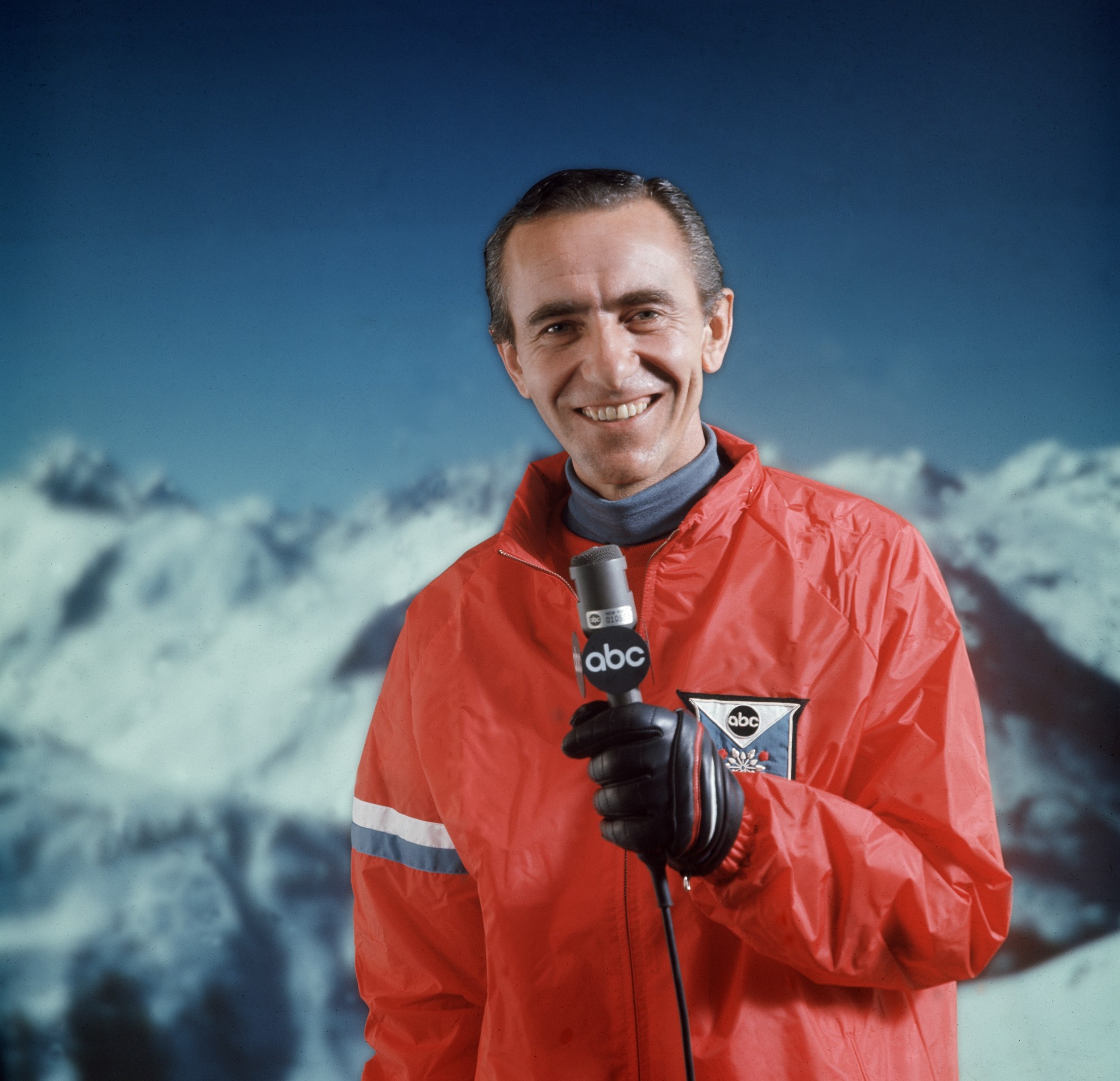Nostalgic America
12 Iconic Olympic Images From History
By Nostalgic America · August 9, 2024
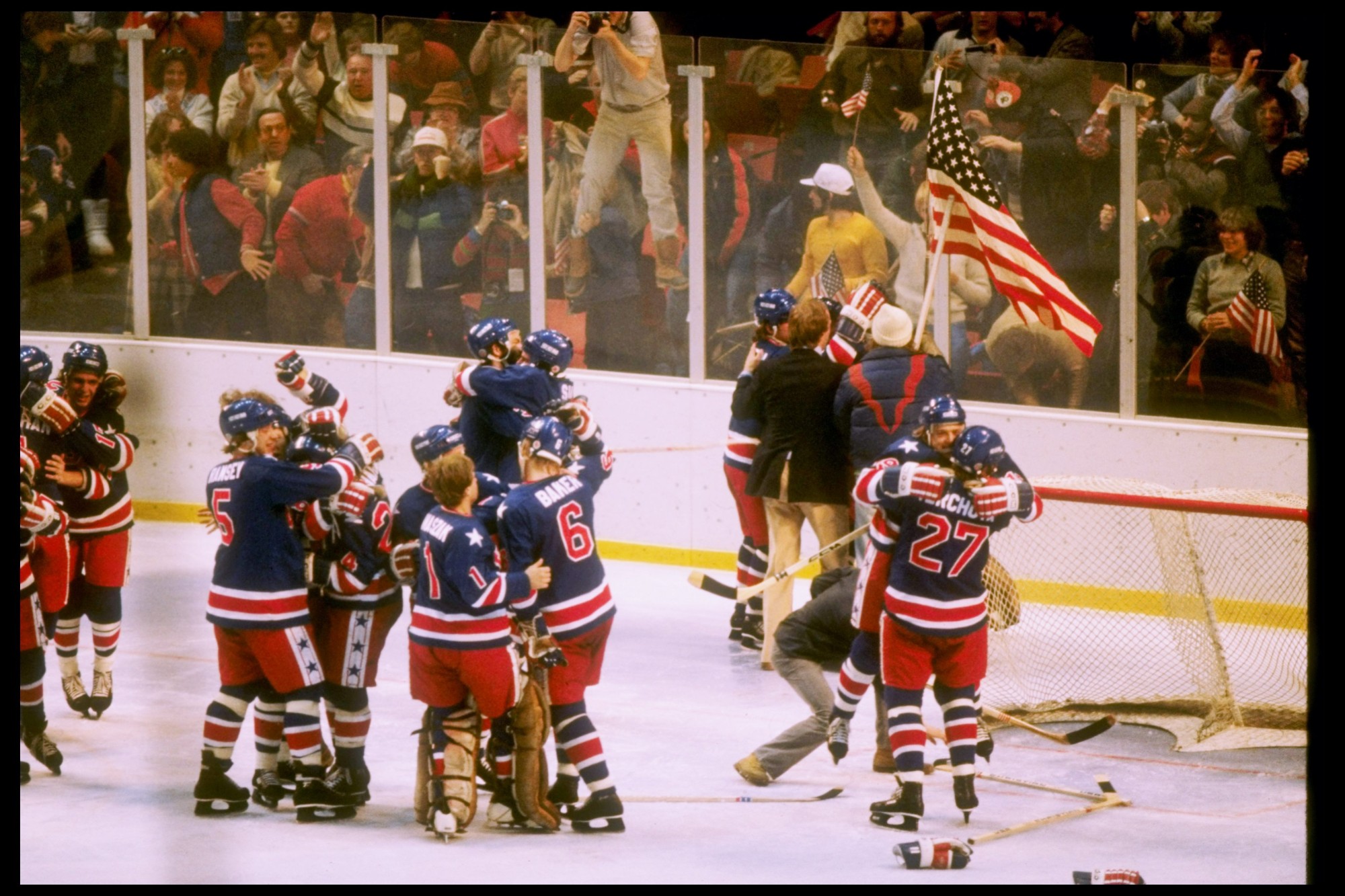
Miracle on Ice - Al Michaels "Do you believe in miracles? YES!"
1980 Winter Olympics40 Year Anniversary – Miracle on Ice
It was dark times across the United States in 1979 and early 1980. The economy was down, an oil crisis led to lines around the block at every gas station, and Americans were being held hostage in Iran. The Cold War was in full force. The Soviets had invaded Afghanistan and as a result, the United States and other nations were threatening to boycott the 1980 Summer Olympics in Moscow.
Against this bleak backdrop, a bunch of young American hockey players were preparing to compete in the 1980 Winter Olympics in Lake Placid, New York. The team, led by Coach Herb Brooks, was not given any realistic shot at winning by any pundits. The Soviets had dominated the Olympic hockey world, having won the previous four Gold Medals. The Soviets were comprised of professional level adults who played together year-round as their full time jobs. The Americans were a bunch of amateurs and had the youngest team in the competition.
Even if by some miracle the Soviets were to lose, it certainly wouldn’t be to the Americans. Canada, Sweden, Finland, Czechoslovakia all had powerful teams as well. The United States was ranked # 7 of the 12 teams in the tournament and accordingly, was not expected to seriously challenge for a medal.
In the days leading up to the Olympics, the Americans hosted the Soviets for an exhibition game in Madison Square Garden. The Soviets won that game easily, 10-3, further cementing their status as the heavy favorites to win the gold.
Just days after that demoralizing defeat, the Americans had to open their Olympic schedule against a talented Swedish team, ranked # 3 in the competition. It was another game Team USA was expected to lose.
But on February 12, 1980, the young Americans surprised the hockey world by playing the Swedes to a 2-2 tie. After that encouraging result, the Americans rattled off 4 straight victories, beating the Czechs 7-3, Norway 5-1, Romania 7-2, and West Germany 4-2. Team USA finished pool play with a 4-0-1 record, coming in 2nd place in their pool, thus qualifying for the medal round.
The format was that the top two teams from both groups qualified for the medal round. Those teams were: USA, Sweden, USSR, and Finland. The medal round was a round robin, however, the results of the 1st matchup from pool play counted in the medal round. Thus the Soviets were already 1-0-0 and in first place in the medal round before it even began as they had beaten Finland earlier. The Americans and Swedes started the medal round at 0-0-1, having tied earlier, and were tied for 2nd place.
As the 2nd place team in their pool, the Americans were scheduled next to face the Soviets, the first place team in the other pool, in what was considered the 2nd game of the medal round. The Soviets had gone 5-0 in pool play, outscoring their opponents 51-11 in those 5 games. Clearly, no one was going to stop this juggernaut.
The historic game was played on February 22, 1980 in a packed and raucous Olympic Fieldhouse in Lake Placid, New York. Fans waved their American flags and chanted “USA, USA” but in reality, didn’t actually believe the Americans had a chance. That feeling didn’t change early on when the Soviets took a 1-0 lead. In fact, the Soviets led 1-0, 2-1, and 3-2 in the game, and led for most of the first two periods.
But heading into the 3rd period, the Soviets only led 3-2, so the game was much more competitive than anyone thought, which made the Olympic Fieldhouse even louder as the fans started to think that the Americans may actually have a chance. Then, Mark Johnson, Team USA’s leading scorer throughout the Olympics, scored to tie the game at 3-3 with 11½ minutes to go. The impossible was starting to become possible.
Just a minute and a half later, Captain Mike Eruzione scored to give Team USA a 4-3 lead with exactly 10 minutes left in the game. The Americans would say later on that it was the longest 10 minutes of their lives. The Soviets vehemently attacked the net in desperation, firing shot after shot, but none of them got past Team USA Goalie Jim Craig.
Strangely, the Soviets didn’t pull their goalie in the final minute to get an extra skater on the ice. It was explained afterwards that they had never practiced playing 6-on-5 because they were never forced into such a situation.
As the final seconds ticked down, Sportscaster Al Michaels uttered his iconic words, “Do You Beiieve in Miracles? Yes!” Then there was bedlam on the ice and all throughout the crowd. A true sports miracle had occurred. A group of young Americans had defeated the big, bad Soviet Union during a high point in the Cold War, giving all of America some happiness in an otherwise gloomy time in our history.
Many people falsely believe that the miracle win over the Soviets won the gold medal for the Americans. But in actuality, there was still one game left to play, two days later, which the Americans needed to win to clinch the gold. Without a win against Finland, the Americans could have still finished 2nd, 3rd, or even 4th place and without a medal. But the Americans came back from a 2-1 deficit heading into the 3rd period to defeat Finland 4-2 and secure a most miraculous gold medal.
After the Miracle on Ice, 13 of the 20 players on the team went on to play in the NHL. Ken Morrow joined the New York Islanders just in time to be a part of their 1980 Stanley Cup Championship, and was a key member of their four Cup run. Mike Ramsey and Neal Broten had the longest NHL careers, playing 18 and 17 years in the league, respectively. However, two of the best remembered players on the team didn’t make it at the NHL level. Goalie Jim Craig played only 30 NHL games and Captain Mike Eruzione never played an NHL game.
Coach Herb Brooks coached 4 different NHL teams, compiling an overall under .500 career record. Sportscaster Al Michaels rose to stardom as a result of his legendary call. And of course, Hollywood has had a field day with this incredible story, as many movies and documentaries were made commemorating this historical event.
Team USA’s Roster:
Coach: Herb Brooks
Assistant Coach: Craig Patrick
Forwards: Neal Broten, Steve Christoff, Mike Eruzione, John Harrington, Mark Johnson, Rob McClanahan, Mark Pavelich, Buzz Schneider, David Silk, Eric Strobel, Phil Verchota, Mark Wells.
Defensemen: Bill Baker, Dave Christian, Ken Morrow, Jack O’Callahan, Mike Ramsey, Bob Suter.
Goalies: Jim Craig, Steve Janaszak Nostalgic America / Getty Images
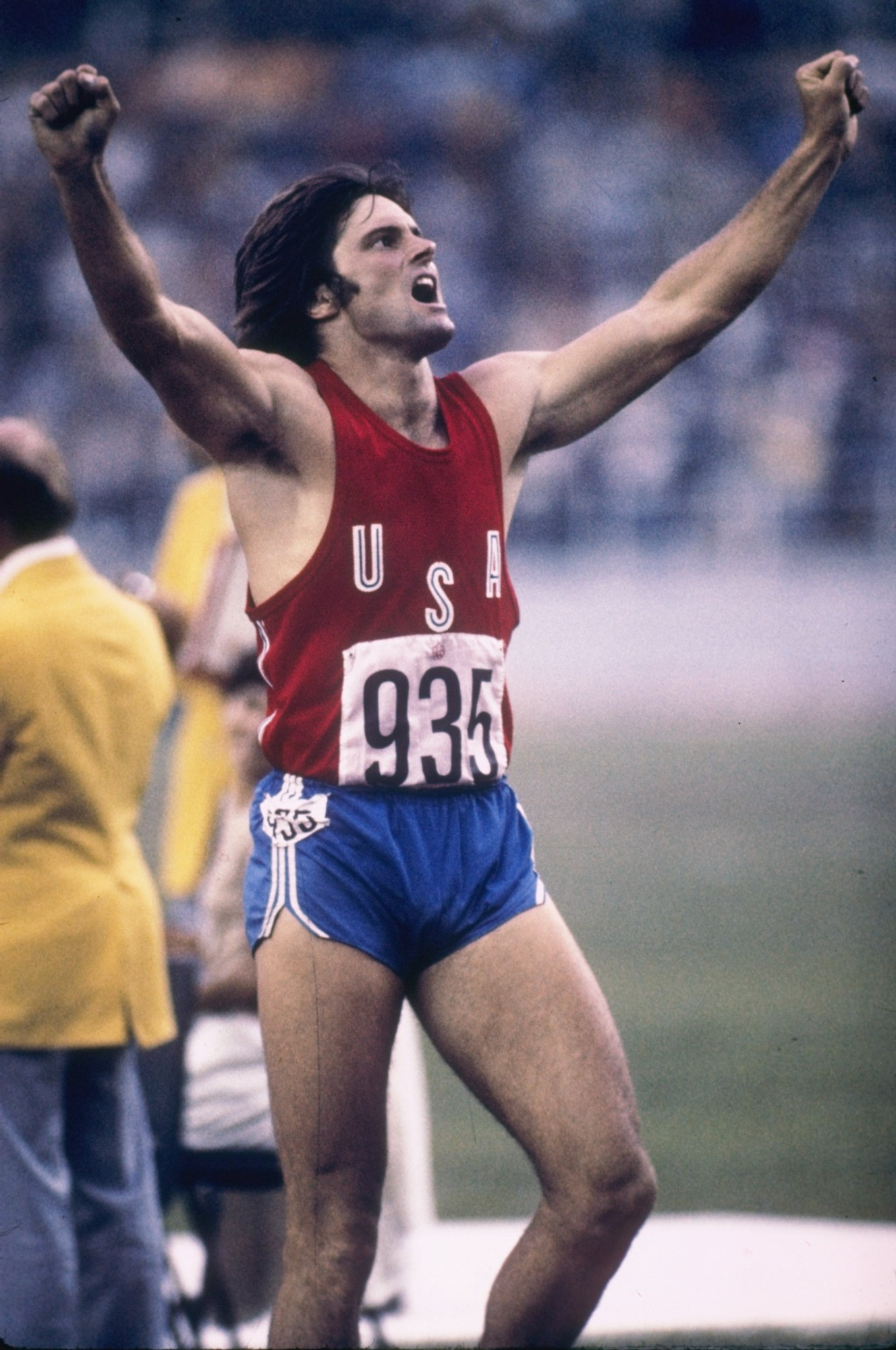
Bruce Jenner – Greatest Athlete in the World in 1976
Bruce Jenner set a world record in decathlon at the Olympic Games Montreal 1976...He took a victory lap with an American flag following the final event of the decathlon in 1976, sparking an Olympic tradition. Nostalgic America / Getty Images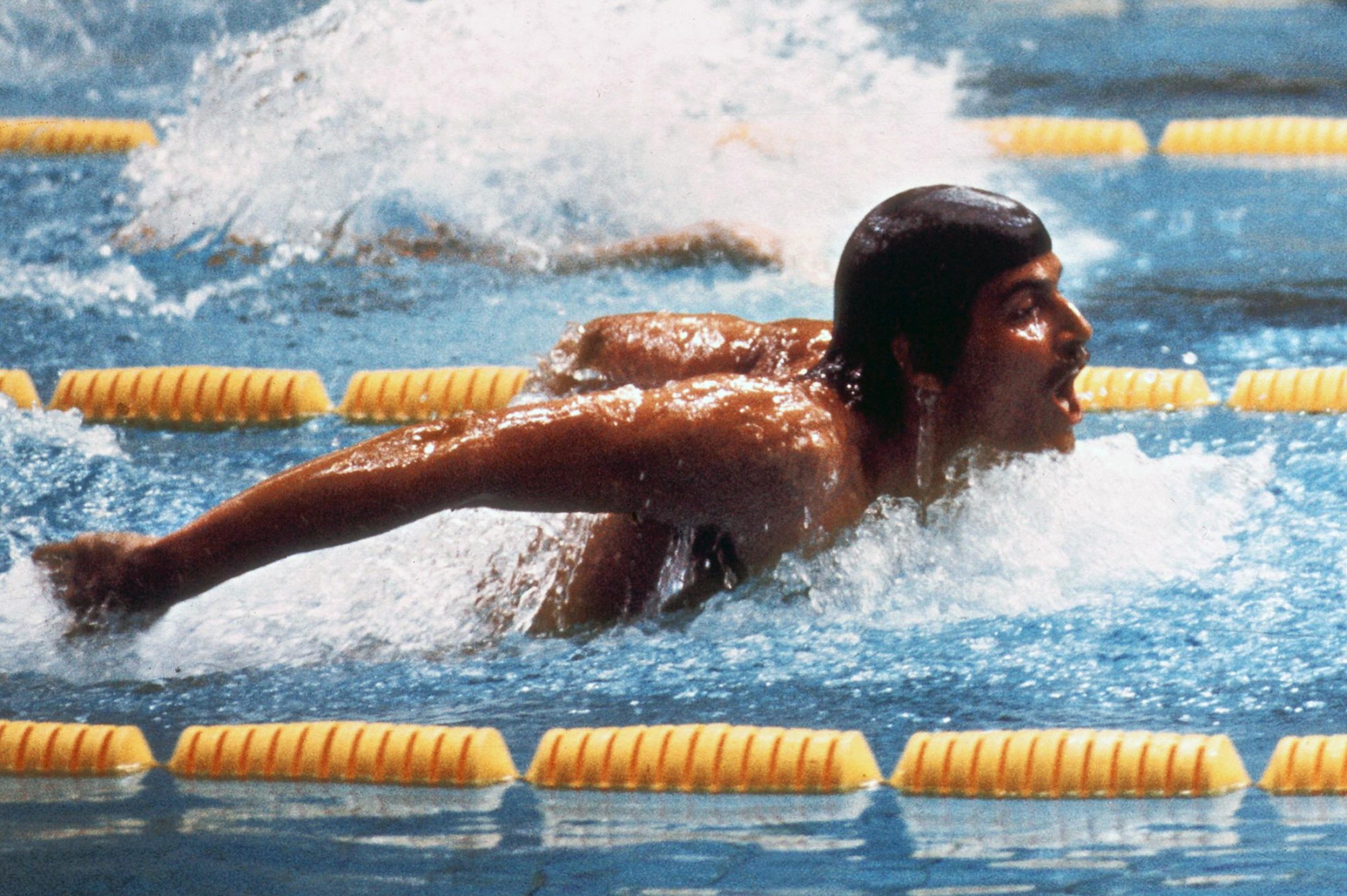
Mark Spitz Wins 7 Gold Medals – 7 World Records
Mark Spitz won a gold medal and set a world record in every one of the 7 swimming events he competed in during the 1972 Summer Olympics. These feats were particularly meaningful as Spitz, who is Jewish, won these medals in West Germany during the same Olympic games that were marred by Palestinian terrorists. Combined with the 1968 Olympic games, Mark Spitz won a total of 9 gold medals, a silver medal and a bronze medal. Nostalgic America / Getty Images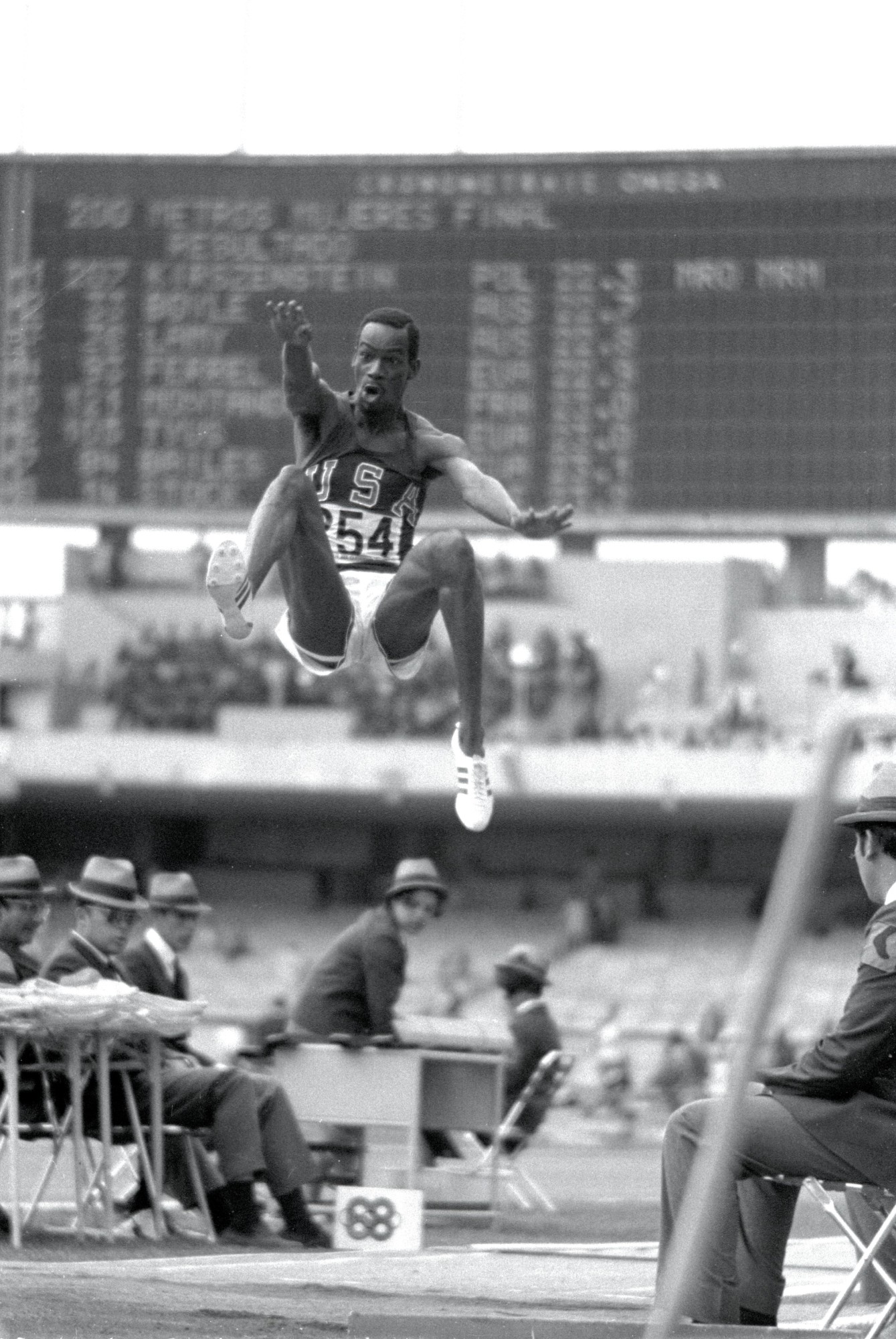
BOB BEAMON SOARS – Greatest Record Ever
At the 1968 Summer Olympic Games in Mexico City, Bob Beamon of the United States made headlines with what Sports Illustrated Magazine claims as one of the five greatest sports moments of the 20th century. Known as an erratic jumper, Beamon tore down the runway, and jumped 29 ft. 2-1/2 in. shattering the existing record by 21-3/4 inches -becoming the first person to reach both 28 and 29 feet. Nostalgic America / Getty Images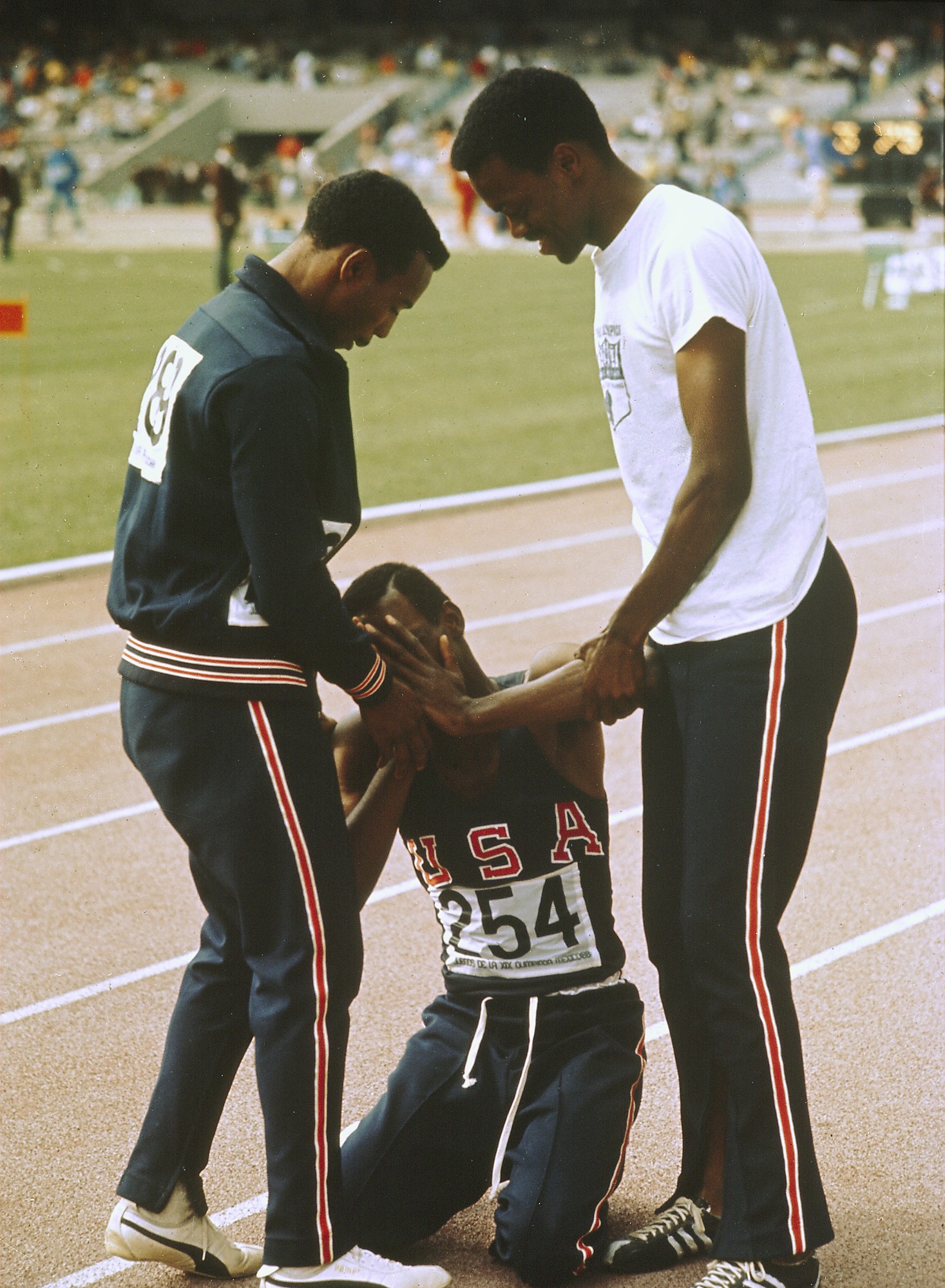
BOB BEAMON SOARS TO HISTORY
October 18, 1968Mexico City Summer Olympics
Bob Beamon sobs from amazement - He becoame the first person to reach both 28 and 29 feet. Nostalgic America / Getty Images
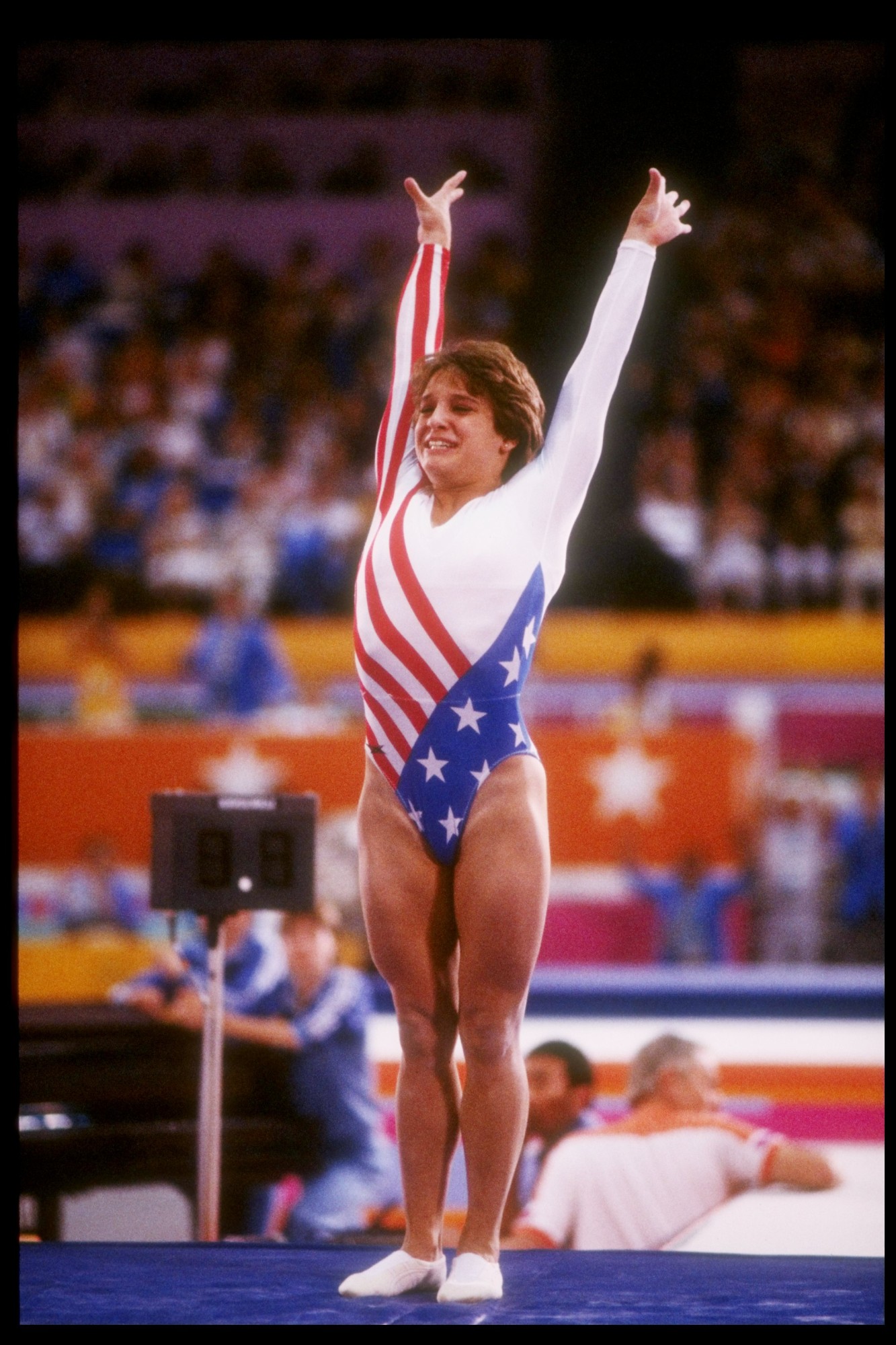
Mary Lou Retton Wins Five Medals
Mary Lou Retton wins five medals including the Gold Medal in the individual All-Around Gymnastics competition at the 1984 Summer Olympic Games in Los Angeles Nostalgic America / Getty Images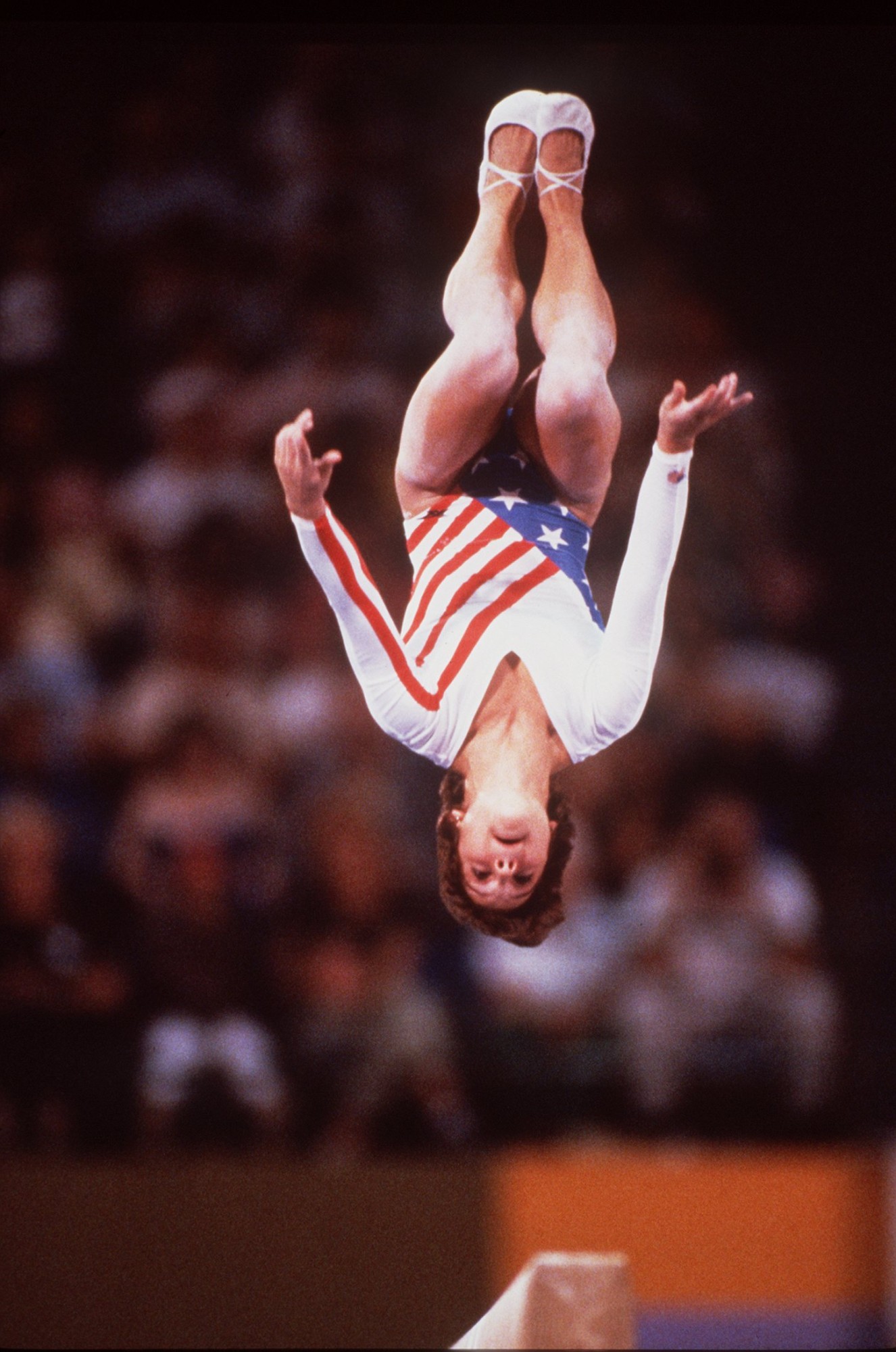
Mary Lou Retton On The Balance Beam
Nostalgic America / Getty Images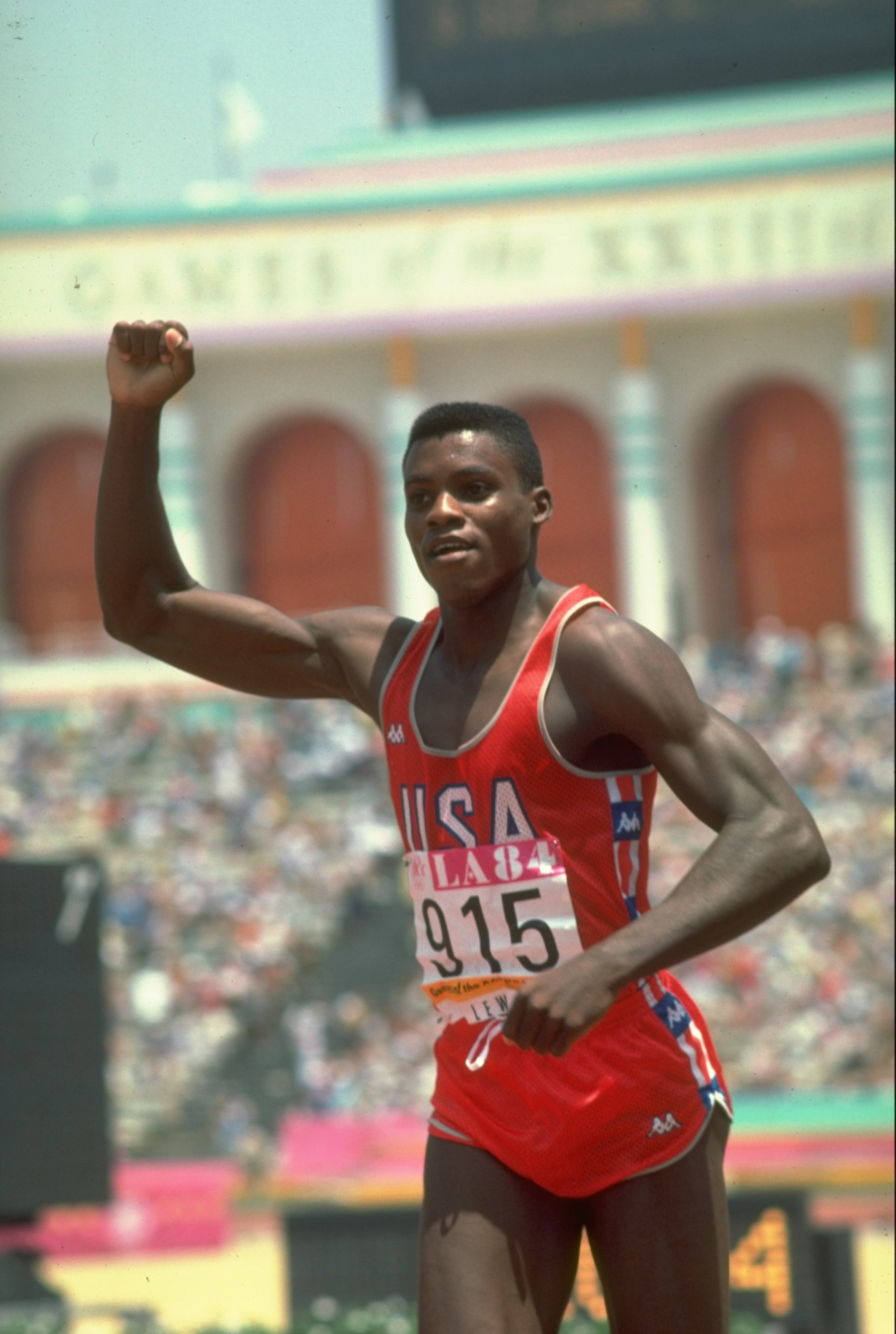
CARL LEWIS WINS 4 GOLD MEDALS
1984 OLYMPICS - Los AngelesIn the 1984 Summer Olympics Carl Lewis started his quest to match Jesse Owens’ four Gold Medals with a convincing win in the 100 meters. In his next event, the long jump, Lewis made only one official jump as he tried to conserve his energy, and his distance of 8.54 meters was sufficient to win that event. His third gold medal came in the 200 meters, where he again won handily and set a new Olympic record. He finally won his fourth Gold Medal when he anchored the 4 x 100 meter relay team that set a new world record. Nostalgic America / Getty Images
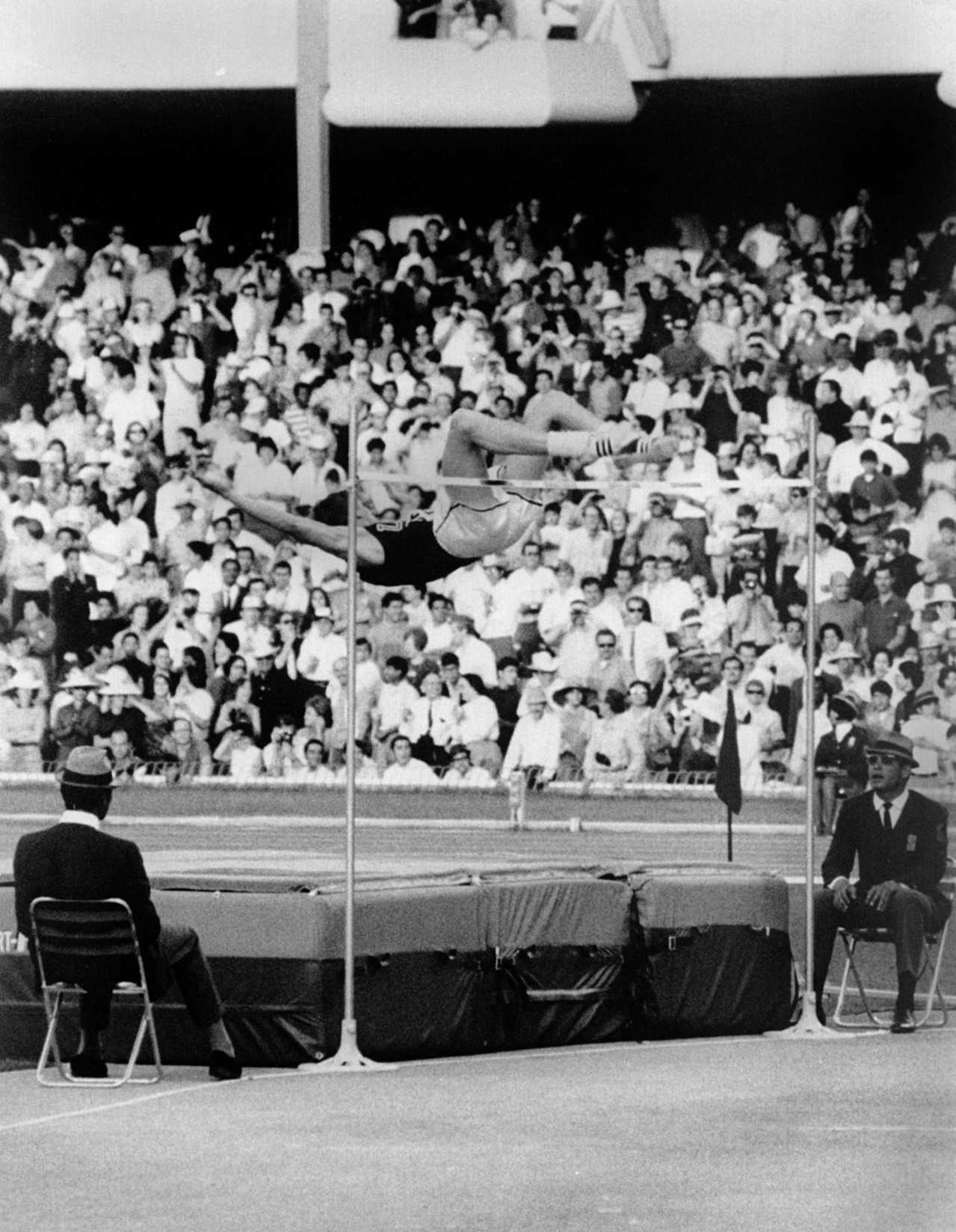
“The Fosbury Flop”
Dick Fosbury introduced his new technique to skepticism from the “high jump” community at the 1968 Summer Olympics in Mexico City. He took the gold medal and set a new Olympic record of 7 feet 4.25 inches. Nostalgic America / Getty Images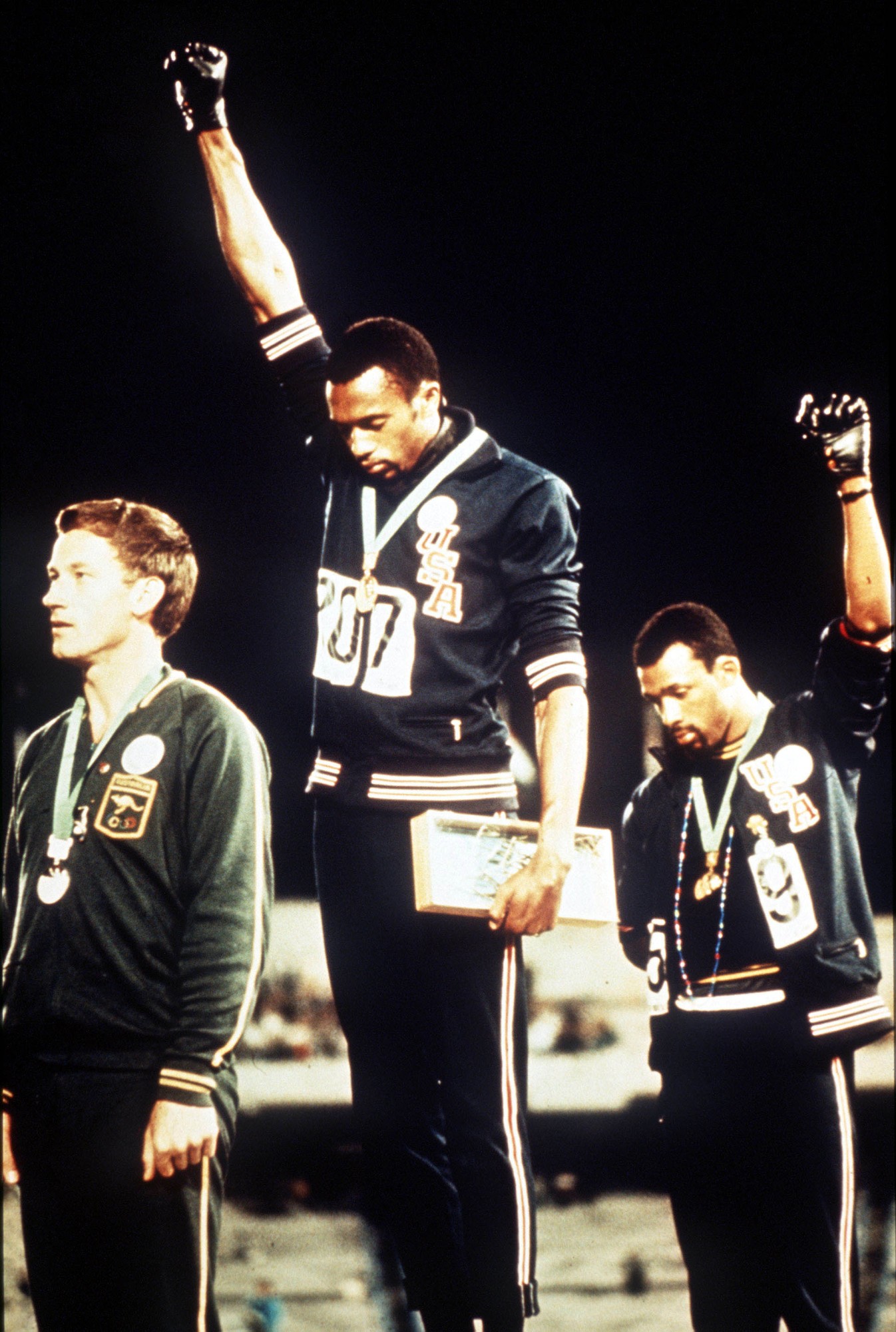
1968 Olympic Protest
During their medal ceremony in the Olympic Stadium in Mexico City on October 16, 1968, two African-American athletes, Tommie Smith and John Carlos each raised a black-glove fist during the playing of the US national anthem, While on the podium, Smith and Carlos, who had won gold and bronze medals respectively in the 200 meter running event of the 1968 Summer Olympics, turned to face the US flag and then kept their hands raised until the anthem had finished. In addition, Smith, Carlos, and Australian silver medalist Peter Norman all wore human-rights badges on their jackets. Nostalgic America / Getty Images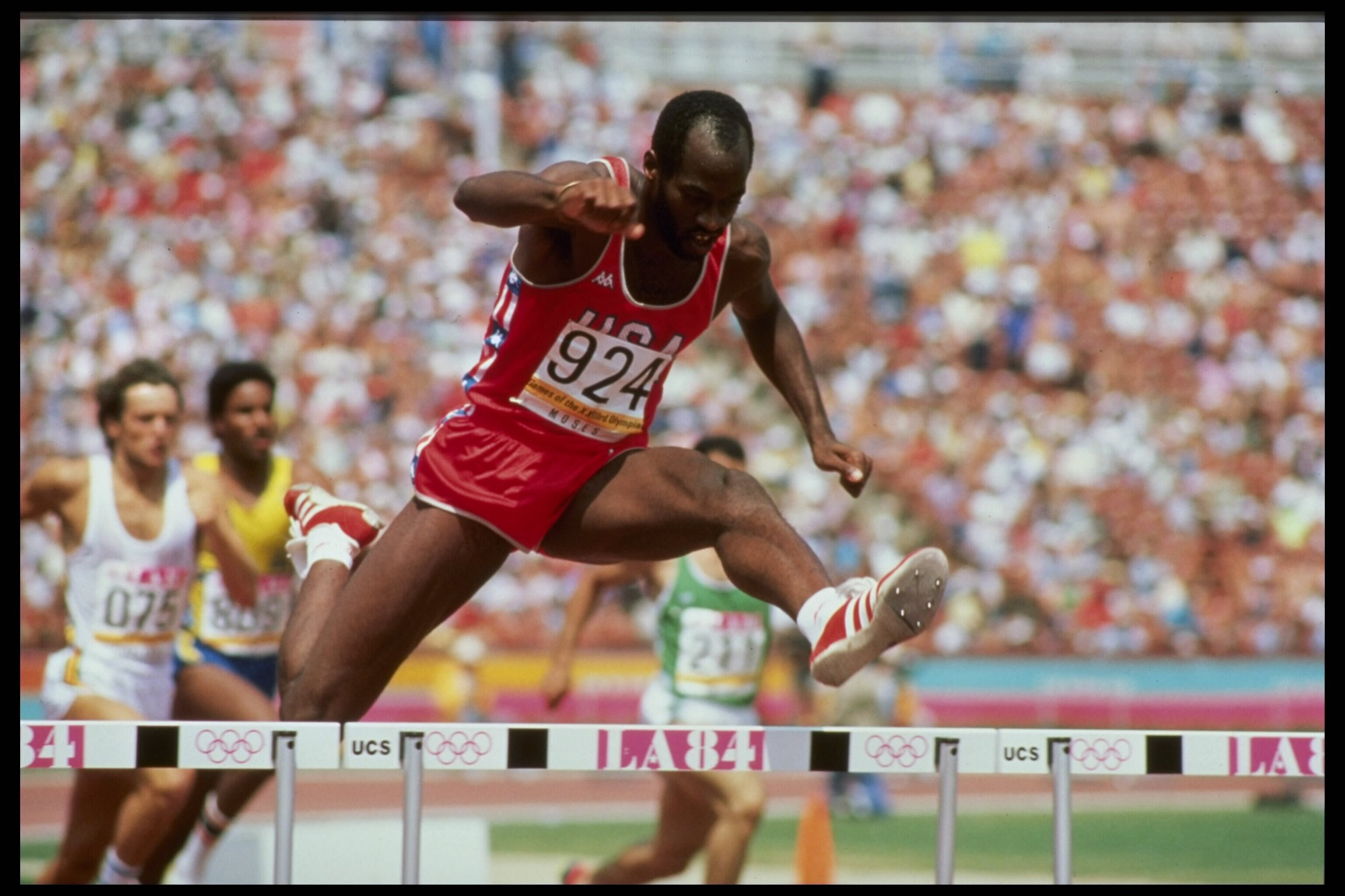
Edwin Moses – “The Best”
Edwin Corley Moses will always be remembered for one of the most dominant reigns in sports. For nine years, nine months and nine days, he was invincible in the 400 meters hurdles, winning 122 consecutive races (107 finals). The 400 meter hurdles covers 10 three-foot obstacles, and Edwin took an unprecedented 13 steps in between the hurdles instead of the usual fourteen which every other hurdler takes. His unique style remains the ultimate demonstration of power, speed, and elegance.By the time he retired from the sport in 1989, Moses had won two Olympic gold medals, in Montreal in 1976 and Los Angeles in 1984, and he would certainly have won a third gold, but for the American boycott of the 1980 Olympics in Moscow. In 1983 he broke the world record for the fourth time in Koblenz, Germany, with a time of 47.02, a mark which stood for the next nine years. During his career he won three World Cup titles and two World-Championships. Nostalgic America / Getty Images
